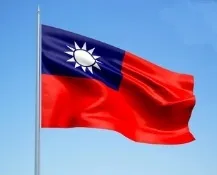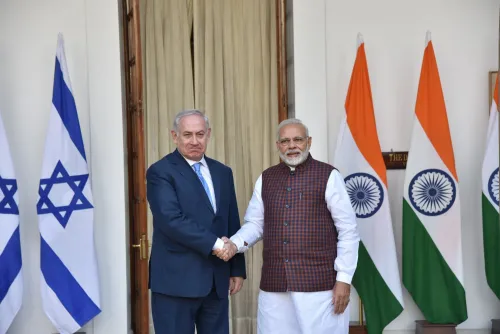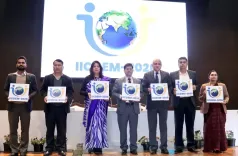How is India Exposing Pakistan’s Past Atrocities in Bangladesh?

Synopsis
Key Takeaways
- India highlights Pakistan's historical atrocities against women in Bangladesh.
- Pakistan's attempts to divert attention to Kashmir criticized by India.
- Women’s roles in peacekeeping have significantly evolved.
- India’s commitment to women's participation dates back decades.
- The UN resolution has reshaped the understanding of peace and security.
United Nations, Oct 7 (NationPress) India has highlighted the world’s attention towards Pakistan’s campaign of “genocidal mass rape” against women in Bangladesh during the nation’s quest for independence as Islamabad attempts to deflect scrutiny of its own actions through “misdirection and hyperbole”.
During a debate on Women, Peace and Security, India’s Permanent Representative P Harish emphasized, “This is a country that executed Operation Searchlight in 1971 and authorized a systematic campaign of genocidal mass rape of 400,000 women citizens by its own army”. His remarks were in response to Pakistan's efforts to shift the focus to Kashmir.
Harish stated, “The world sees through Pakistan’s propaganda”.
The reminder of Pakistan's historical atrocities in Bangladesh coincided with the Dhaka regime, under Mohammad Yunus, responding to Islamabad's overtures.
Harish dismissed Pakistan’s Permanent Representative Asim Iftikar Ahmad's remarks about India as a “delusional tirade” that brought in Jammu and Kashmir, “the Indian territory they covet”.
He further asserted, “A country that bombs its own people and conducts systematic genocide can only attempt to distract the world with misdirection and hyperbole”.
Pakistan frequently interjects its views on Kashmir in discussions at the UN, despite the lack of support from other member nations.
Although Ahmad accused India of repression, his own country’s security forces killed at least 12 individuals last week in the region of Kashmir they occupy, as part of their campaign to suppress calls for government reform.
UN Secretary-General Antonio Guterres reflected on a historic resolution passed by the Security Council 25 years ago, which elevated the role of women in conflict prevention, peace negotiations, and peace-building.
He noted progress since then, highlighting that women have “led local mediation, shaped new laws, and advanced justice for survivors of gender-based violence”.
He pointed out that the number of women peacekeepers has doubled and that gender provisions in peace agreements have become increasingly common.
However, he cautioned that these gains are fragile and, alarmingly, are regressing. “Around the globe, we see troubling trends in military spending, more armed conflicts, and increasing brutality against women and girls”, he added.
Harish characterized the adoption of the Council resolution as a “transformative moment that fundamentally reshaped our understanding of peace and security -- recognising that sustainable peace cannot be achieved without the full and equal participation of women”.
He affirmed that India’s commitment to the principles behind the resolution predates its adoption by several decades.
Indian medical officers were pioneers in women’s participation in peacekeeping, joining UN operations in Congo in 1960.
In 2007, India made history by contributing the first all-female Formed Police Unit to the UN, which was deployed in Liberia, inspiring local women to engage in law enforcement and contribute to rebuilding their society.
Kiran Bedi, the first female officer of the Indian Police Service, also made significant contributions as the first female Police Advisor at the UN and head of the United Nations Police Division in 2003.
Harish concluded, “It is no longer a question of whether women can do peacekeeping; rather, it is whether peacekeeping can do without women”.
India is committed to enhancing women's leadership in peacekeeping through the Indian Army’s Center for United Nations Peacekeeping in New Delhi, which launched a special course for women military officers in 2016, attracting participants from numerous countries.










